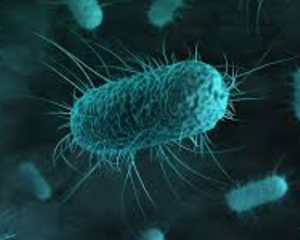The increasing number of UTI cases are due to several factors, one of which is a burgeoning population.
尿路感染病例數量的增加是由多種因素造成的,其中之一是人口的快速增長。
"As the population increases, we expect more UTIs and more of the disease burden associated with UTIs because there are more people," says Lazarus.
“隨著人口的增加,我們預計會出現更多的泌尿道感染,以及與泌尿道感染相關的疾病負擔也會增加,因為人口越來越多,”拉扎勒斯說。
On top of that, some of the conditions associated with UTIs, such as kidney stones and type 2 diabetes, are also on the rise.
最重要的是,一些與泌尿道感染相關的疾病,如腎結石和第2型糖尿病,也在增加。
And a high number of teens and adults are sexually active.
大量青少年和成年人性行為活躍。
"In otherwise healthy women, sexual activity is the number one contributor to developing a UTI," says Van Kuiken.
“對于其他健康的女性來說,性活動是導致泌尿道感染的首要因素,”范奎肯說。
The global population is also getting older. "Because UTIs are more common in seniors, their prevalence is increasing as the population ages," says Comiter.
全球人口也在老化。“由于尿路感染在老年人中更為常見,因此隨著人口老化,其盛行率也在增加,”科米特說。
Cindy Liu, a microbiologist and the chief medical officer at the Antibiotic Resistance Action Center at George Washington University's Milken Institute School of Public Health, cites another compelling factor behind the rising numbers of more dangerous infections: an increase in antibiotic-resistant UTIs.
喬治華盛頓大學米爾肯研究所公共衛生學院抗生素抗藥性行動中心的微生物學家兼首席醫療官辛迪·劉,列舉了更危險的感染數量不斷增加背后的另一個令人信服的因素:抗生素抗藥性泌尿道感染的增加。
"Without changing how we use our antibiotics, we are on track to have fewer options for treating bladder, kidney, and urosepsis infections," she says.
“如果不改變我們使用抗生素的方式,我們治療膀胱、腎臟和尿毒癥感染的選擇將會減少,”她說。
Meat consumption plays a part in all this in two distinct ways: by introducing infection-causing bacteria to the urethra, and because many of the antibiotics introduced in meat sources can end up increasing resistance to the medications that could kill the infection once it begins.
肉類消費以兩種不同的方式在這一切中發揮作用:將引起感染的細菌引入尿道,并且因為肉類來源中引入的許多抗生素最終會增加對藥物的抵抗力,而一旦感染開始,這些藥物就可以殺死感染。
Healthy farm animals in the U.S. and elsewhere often receive antibiotics for disease protection, a practice known to drive antibiotic resistance.
美國和其他地方的健康農場動物經常接受抗生素來預防疾病,這種做法會導致抗生素抗藥性。
Comiter cites "the overuse of these antibiotics in animal husbandry" as one significant reason more and more people are developing resistance to the antibiotics used to treat UTIs.
科米特引用“畜牧業中過度使用這些抗生素”作為越來越多的人對用于治療泌尿道感染的抗生素產生抗藥性的一個重要原因。

"Eating meat that has been heavily treated with antibiotics may be contributing to increasing rates of antibiotic resistance as the human microbiome is being influenced by meat consumption," echoes Van Kuiken.
范奎肯回應道:“吃經過大量抗生素處理的肉類可能會導致抗生素抗藥性增加,因為人類微生物群正受到肉類消費的影響。”
"This does not mean that if you eat meat, you are going to get a UTI, but it could increase the likelihood that you may end up colonized with a multi-drug resistant organism."
“這并不意味著如果你吃肉,你就會患上尿路感染,但它可能會增加你最終感染多重抗藥性微生物的可能性。”
Drug-resistant or not, E. coli from meat can colonize your gut and spread to your urinary tract.
無論是否具有抗藥性,肉類中的大腸桿菌都會在你的腸道中定殖并擴散到尿道。
This can occur in women after the contaminated meat passes through the digestive system and is excreted in close proximity to the vaginal wall, where the bacteria has only a short distance to travel between the anus and the entrance of the urethra.
這種情況可能發生在女性身上,受污染的肉類會通過消化系統并在陰道壁附近排出,而細菌在肛門和尿道入口之間的傳播距離很短。
While scientists have long known this can happen, they're learning that it likely happens more frequently than previously suspected.
雖然科學家早就知道這種情況可能會發生,但他們發現這種情況發生的頻率可能比之前猜測的要高。
A 2023 study estimates that contaminated meat causes nearly half a million UTIs in the United States annually—a small fraction of the more than eight million UTI-related healthcare visits in the country each year, but enough to merit concern.
2023年的一項研究估計,在美國,受污染的肉類每年會導致近50萬例尿路感染,雖然僅占該國每年超過800萬例與尿路感染相關的醫療就診的一小部分,但足以引起關注。
Especially so because "30 to 70 percent of our retail meat products have been shown to be contaminated with E. coli," says Liu, who co-authored the 2023 research.
尤其如此,因為“我們的零售肉類產品中有30%到70%已被證明受到大腸桿菌污染,”2023年研究的共同作者辛迪·劉說。
Such bacteria are usually killed in the cooking process before being ingested, she explains, so many of these infections are likely stemming from behaviors related to food preparation.
她解釋說,這些細菌通常在攝入前的烹飪過程中被殺死,因此許多感染可能源于與食物準備相關的行為。
"Unless you are extremely careful, you contaminate your sink, kitchen surfaces, your hands, and your raw foods whenever you handle contaminated meat products," says Liu.
“除非你非常小心,否則每當你處理受污染的肉制品時,你就會污染你的水槽、廚房表面、你的手和生食,”劉說。
From those places, the bacteria can proliferate, potentially coming into contact with the food you end up consuming.
從這些地方,細菌可以增殖,并有可能接觸到你最終食用的食物。












